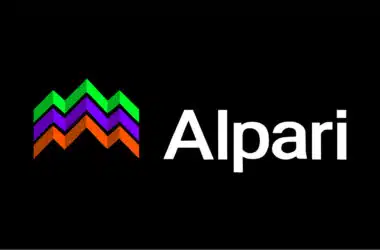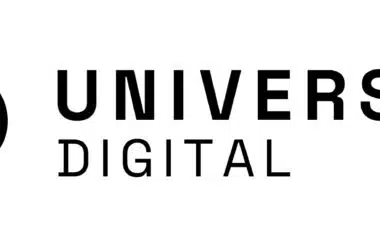
Financial Planning and Analysis (FP&A) is an important function within any organization, responsible for budgeting, forecasting, and analyzing financial performance. This function steers the whole organization towards its vision. As the finance industry evolves, particularly with the integration of technology, there is a growing demand for FP&A professionals equipped with fintech job skills.
Table of Contents
The Role of FP&A Trainee Programs
FP&A trainee programs are structured to equip aspiring finance professionals with the required skill set to excel. These programs often include a combination of theoretical knowledge and practical experience, covering areas such as financial modeling, budgeting, forecasting, and financial analysis.
Key Components of FP&A Trainee Programs
- Financial Modeling and Analysis: Trainees learn to create and analyze financial models, which are essential for forecasting and decision-making. This is the bread and butter of FP & A professionals. Programs like the ones offered by PwC provide comprehensive training in financial modeling, including hands-on projects that simulate real-world financial scenarios.
- Technical Skills Development: Knowledge of financial software systems is critical. Trainee programs often include training in popular financial tools and software such as Excel, PowerBI, and various ERP systems. These tools help automate financial processes and improve reporting accuracy.
- Understanding of FinTech: FinTech, or financial technology, is transforming the finance sector by leveraging digital technologies to deliver financial services. Trainees in FP&A programs gain insights into how FinTech is disrupting traditional finance roles and the skills needed to thrive in this new environment, opening doors to fintech jobs.
- Risk Management and Compliance: Training in risk analysis and compliance is crucial. Trainees learn to identify, evaluate, and manage financial risks, ensuring that their organizations comply with regulatory requirements. This knowledge is particularly relevant in the context of RegTech, which uses technology to streamline compliance processes, a key area in fintech jobs.
What FP&A Professionals Have to Study
FP&A professionals must master a lot of subjects to effectively perform their roles and secure fintech jobs. Here are key areas of study:
- Accounting and Finance: This is the absolute bedrock for any finance professional. A solid understanding of accounting principles and financial management is essential. This includes knowledge of financial statements, cash flow analysis, and financial ratios.
- Economics: Grasping economic principles helps FP&A professionals understand market dynamics, economic indicators, and how external factors impact a business’s financial performance.
- Business Strategy: Knowledge of strategic planning and business operations is crucial. Business strategy modules are a main part of any financial certification. Strategic planning helps FP&A professionals to align the company`s financial trajectory with the strategic objectives.
- Data Analysis and Statistics: Proficiency in data analysis and statistics is becoming more and more important for interpreting financial data, identifying trends, and making data-driven decisions. Tools like Excel, SQL, and data visualization software are commonly used, making these skills highly relevant for fintech jobs. If you can couple your accounting skills with data analysis skills, then you`ll be doubling your paycheck in no time.
- Technology and Systems: Familiarity with financial software systems, ERP systems, and business intelligence tools is essential. These systems help streamline financial processes and enhance reporting accuracy.
- Risk Management: Understanding risks is a key part of financial planning. FP&A professionals need to evaluate and mitigate these risks to safeguard the company’s financial health.
- Communication Skills: Strong written and verbal communication skills are necessary for presenting financial insights and recommendations to stakeholders clearly and effectively.
Famous FP&A Professionals
Several notable individuals have made significant contributions to the field of FP&A, often bridging their roles into fintech jobs. Here are a few:
- Tim Stone: Tim Stone is known for his role as Chief Financial Officer at Ford Motor Company and his previous position as CFO of Snap Inc. His expertise in financial planning and analysis has been pivotal in driving financial strategy and operational efficiency at these major companies.
- Patricia Harris: Patricia Harris, CFO of Bloomberg LP, has been instrumental in financial planning and strategic analysis, helping the company maintain its competitive edge in the financial information industry.
- David Wehner: As the CFO of Facebook (now Meta), David Wehner has overseen the company’s financial planning and analysis, contributing to its impressive financial growth and strategic planning in the tech industry.
- Amy Hood: Amy Hood, CFO of Microsoft, has played a crucial role in the company’s financial planning and analysis, driving significant financial growth and strategic investments in cloud computing and other technologies.
- Ruth Porat: Ruth Porat, the former CFO of Alphabet Inc. and Google, is renowned for her expertise in financial planning and analysis. She has been a key figure in shaping the financial strategies of one of the world’s most influential tech companies.
Career Prospects in FinTech
FP&A professionals with FinTech expertise are going to be in demand for the foreseeable future. The integration of technology into financial planning and analysis roles opens up various career opportunities in FinTech companies. These firms specialize in using tech solutions to enhance financial services, creating a demand for professionals who can navigate both finance and technology landscapes. This makes FP&A a promising path for securing fintech jobs.
Conclusion
FP&A trainee programs are an excellent pathway for those looking to enter the finance industry, especially within the FinTech sector. By combining traditional financial skills with cutting-edge technology, these programs prepare professionals to meet the evolving demands of the finance world and secure fintech jobs. With the right training, aspiring FP&A professionals.













Recent Comments